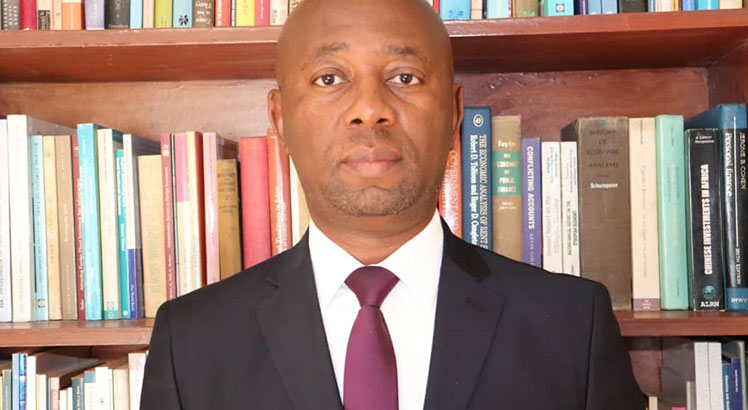ECAMA sees ECF unlocking $80M
Economics Association of Malawi (Ecama) says Malawi can potentially unlock about $80 million (about K94 billion) in foreign aid inflows if it gets an International Monetary Fund (IMF) deal contrary to projections of $600 million (about K700 billion).
The economics grouping has hinted that the projected financing from development financing institutions (DFIs) can only flow in after economic stability.
Speaking during the Reserve Bank of Malawi (RBM) Fourth Monetary Policy Technical Forum yesterday in Blantyre, Ecama executive director Frank Chikuta observed that there are high expectations that Malawi can get the Extended Credit Facility (ECF) upon approval by IMF Executive Board approval in mid-November.
He urged authorities to tame the high expectations which he said have negative implications on the economy.
Said Chikuta: “From the look of things all sectors of the economy believe that the ECF is the solution to our economic challenges. The figures going out there are quite alarming. We tried to use our own way to find what is expected after the ECF is signed and we found that Malawi could unlock about $80 million. Don’t expect disbursements to be a lot with ECF.

“These built expectations are a key variable to economic growth and could affect the economy either in terms of prices, revenue and supply. There is a lot of work to do to manage these expectations. “
He said to get the ECF, government will need to restructure its external debt and adjust the exchange rate. But he observed that while Malawi is negotiating to restructure external debt, there appear to be no remedy on domestic debt.
Said Chikuta: “There is serious risk to debt restructuring as it will create room to spend more which needs to be addressed by collecting more revenue to achieve a sustainable fiscal position.
“But, this is difficult to achieve because demand is huge and as we are going towards elections, it is difficult for government to tame expenditure. Also, the adjustments which have to take place for the economies to stabilise are not politically palatable.”
As at March 2023, Malawi’s total public debt stock stood at K9.4 trillion or 75 percent of the gross domestic product (GDP), out of which external debt stood at $3.94 billion (about K4.6 trillion) or 32 percent of GDP, while K5.36 trillion or 43 percent of GDP, was domestic debt.
RBM director of economic policy research Kisu Simwaka said while the expected disbursements are not that significant, what matters are inflows due to the programme, which hovers around $175 million (about K207 billion).
He said: “ECF is key to unlocking inflows. The money may go a long way in meeting our needs even though it is not enough. But if risks arise, RBM may consider further tightening of the monetary policy.”
Meanwhile, RBM data shows that forex reserves remain low at one month of import cover in the third quarter of 2023, down from the 1.2 months of import cover in the previous quarter.
The bank has since maintained the policy rate at 24 percent following the recent moderation in inflationary pressures although upside risks to the inflation outlook that include exchange rate movements, increases in crude oil prices and adverse weather conditions, remain.
The central bank has also revised downwards the 2023 inflation projection from 29.5 percent to 28.2 percent.
In her statement last month, IMF deputy division chief in the African Department Mika Saito said the IMF-supported programme will strive to “restore macroeconomic stability, build a foundation for inclusive and sustainable growth and address weaknesses in governance and institutions”.
Malawi is attempting to build policy credibility under a staff-monitored programme with the IMF as a precursor to a funded programme.
The Tonse Alliance administration prematurely terminated Malawi’s previous ECF for the period 2018-20 upon assuming power in June 2020 citing irregularities, including revelations of misreporting of foreign reserves.
ECF provides medium-term financial assistance to low-income countries with protracted balance of payments problems. The ECF is one of the facilities under the Poverty Reduction and Growth Trust.
Economists credit ECF as a more reliable programme that provides financial assistance to countries with balance of payment problems.






One Comment